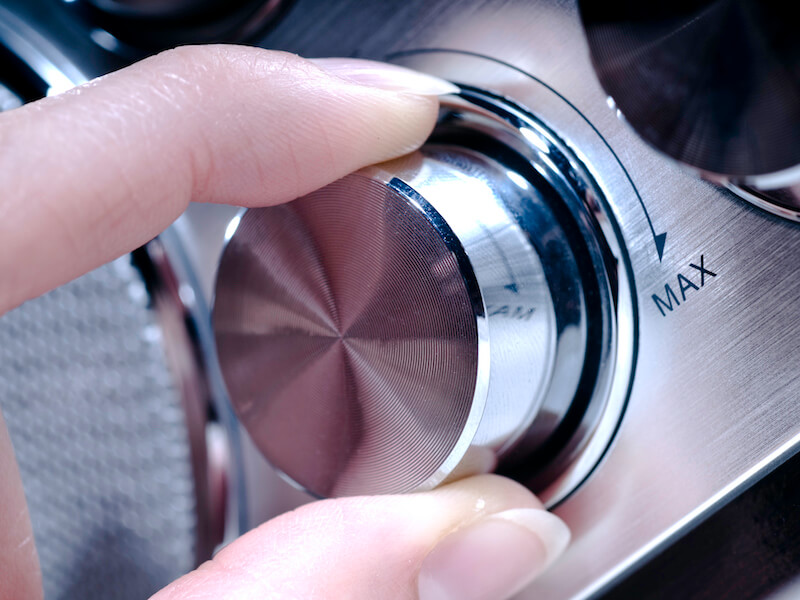
Sometimes, it’s easy to know when you require medical advice. When you break your leg, for instance, you know you should go to the doctor (or the emergency room, depending on the situation). You might need a splint or a cast or supportive device, but the point is that you’re unlikely to try “toughing it out”. At least, not for very long (especially if you want your bones to repair themselves correctly).
It’s not always that clear cut in terms of hearing aids, though. Hearing loss typically progresses really slowly over time. This means knowing when to get treatment for hearing loss can be difficult.
So watching out for signs that your hearing is going is a good idea. It’s probably time to call us for a consultation if you do notice any.
Hearing loss and hearing aids
Hearing aids are the primary form of treatment for hearing loss. But that doesn’t mean everyone who has hearing loss will immediately need a pair of hearing aids. In cases where patients have very mild hearing loss, hearing aids won’t always be beneficial. As a result, we may want you to wait before beginning to use them. In addition, you may be advised to wear hearing aids only in certain situations.
In other words, the threshold for requiring hearing aids isn’t always a hearing loss diagnosis.
However, hearing aids will be the best answer in many cases. Because hearing loss can be a sneaky and slow condition, many individuals don’t get a diagnosis until there’s been considerable damage. But if you come in for a hearing exam regularly, you may be able to catch your hearing loss early, and, as a result, you might not require hearing aids immediately.
And if that’s the case, you’re probably thinking: how can I tell if I need hearing aids?
You need hearing aids if you recognize these indicators
Immediate communication problems can be the result of hearing loss. The curious thing, though, is that you don’t always understand that those communication obstacles are the result of hearing loss. So, at what point will a hearing aid help?
Here are a few of the common signs you should watch out for:
- When you’re in noisy settings, you have a difficult time following conversations: When people ask, “What are the signs of hearing loss?”, this one almost always comes up. If you have trouble hearing conversations in loud places, that’s usually a sure sign that you have hearing loss. This occurs because your ears are not getting as much information as they used to, and your brain isn’t really capable of filling in the gaps as easily. Because of this, there’s a lot of muffled conversations.
- You’re unable to understand people on the phone: Voices usually sound a bit flat on even high-quality phone speakers. If you have hearing loss, this can make it even harder to understand conversations. Once again, specific frequencies are missing and the result is that it’s very difficult to understand those voices.
- When people speak, you can’t always understand what they said: Many people don’t think they have hearing loss or need hearing aids because the overall volume they perceive seems fine. But the thing about hearing loss is that specific frequencies of sound often go before others. Which means that the vast majority of sounds might seem ordinary but things in the high frequencies (such as particular vowels) will be distorted. As a result, you might have a hard time understanding what people are saying to you.
- You listen to the radio or TV at high levels: If you’re continuously turning the volume up on your television or radio or smartphone, it may be because of hearing loss. This is especially true if you keep moving that volume knob higher (and even more especially true if the people around you complain about how loud your media is).
So how should you deal with it?
When you break a bone, it’s clear cut what to do: you go see the doctor! But what do you do when you begin to notice the symptoms of hearing loss? How bad does hearing loss need to be to require a hearing aid? That’s not a very easy answer but you should schedule an appointment with us for a hearing test if you start to detect any hearing loss symptoms. We’ll be able to assess the health of your hearing and find out just how severe your hearing loss may or may not be.
And if you do wind up needing hearing aids, a hearing assessment will help identify the best device for your hearing needs. This means you’ll be able to get back to communicating with your friends and family, you’ll understand your grandkids when they give you a call, your co-workers at your morning meeting, and your friends at the pub.
Call us to schedule your hearing exam, we can help you understand if you’re suffering from hearing loss.